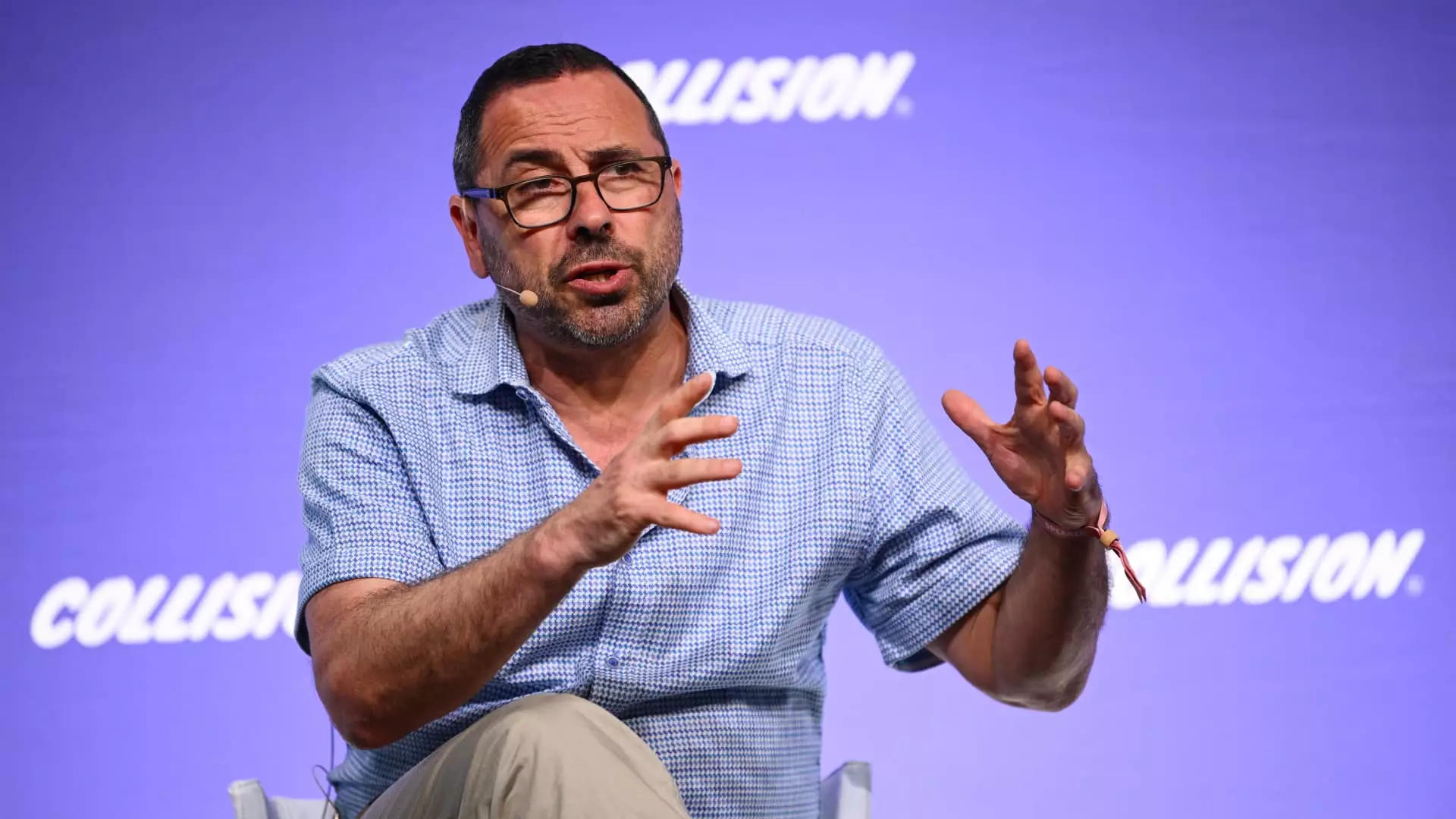The artificial intelligence (AI) industry is currently undergoing a transformative revolution, largely propelled by companies like Nvidia, which recently garnered a staggering valuation of $3.3 trillion. In this expansive landscape, one venture-backed tech company, Cerebras, seeks to take a bold step forward: an initial public offering (IPO). Although the company’s ambitions to become a major player in AI infrastructure are commendable, several substantial hurdles could dampen its prospects.
Since its inception in 2016, Cerebras has maintained an ambitious approach to chip design, specifically targeting the burgeoning AI market. The company made waves in 2019 with its launch of the world’s largest chip, the Wafer Scale Engine (WSE), which it claims surpasses the capabilities of Nvidia’s popular graphics processing units (GPUs) for training large language models. Cerebras’ aspiration for its IPO is to see its valuation of approximately $4 billion from 2021 double — a goal planted firmly in an era characterized by excessive demand for AI technologies.
Cerebras has reported staggering growth figures, with revenue surging from $78.7 million in 2023 to $136.4 million in just the first half of 2024. The company also declared agreements for $1.43 billion worth of sales, a substantial commitment that signals strong market potential. These numbers might be compelling indicators of growth to some investors, depicting Cerebras as an attractive investment in a booming sector.
However, one of the most critical red flags surrounding Cerebras’ IPO plans is its customer concentration. A whopping 87% of its revenue in the first half of 2024 came from a single customer, G42, based in Abu Dhabi and closely linked with Microsoft. The company’s reliance on one major account presents significant risks. Such customer concentration can undermine financial stability and raise alarms for potential investors concerned about the company’s long-term viability.
The absence of diversification within Cerebras’ client base is a pronounced issue. While the company has attempted to mitigate this risk by expressing intentions to venture into sectors like healthcare and biotechnology, the lack of established relationships in these areas leaves uncertainties about the company’s ability to attract new clients in a competitive environment.
The stakes are further heightened by Cerebras’ approach to foreign investment. With G42 seeking a larger stake in the company, Cerebras must navigate the complex landscape of U.S. regulatory scrutiny, specifically under the auspices of the Committee on Foreign Investment in the U.S. (CFIUS). The concerns surrounding G42’s past ties with Chinese entities generate additional layers of risk to the already precarious venture, as U.S. lawmakers have expressed unease regarding foreign interference in domestic tech markets.
Although Cerebras has communicated its belief that CFIUS lacks jurisdiction over certain aspects of G42’s investment, the uncertainty of regulatory approval could delay or even derail the IPO process entirely, leaving investors second-guessing the venture’s viability. Such complications underline the significance of fostering robust investor confidence as the company traverses this intricate landscape.
A further indicator of Cerebras’ challenges comes from its choice of partners for its IPO process. Major tech investment banks such as Goldman Sachs and Morgan Stanley have notably opted out of involvement with Cerebras, pointing to inherent risks associated with customer concentration and foreign investments. Instead, Citigroup and Barclays have taken the lead. While these banks are reputable, they may lack the prominence and influence in tech IPOs that institutions like Goldman or Morgan possess.
This lack of association with the top-tier financial institutions could hinder Cerebras’ efforts to attract a broader range of investors, especially in a climate where investor sentiment around tech IPOs remains cautious following a series of underperforming ventures.
Despite these challenges, the substantial excitement surrounding AI infrastructure cannot be dismissed. Cerebras is keenly aware of the growing interest and the dearth of compelling investment opportunities within the AI sector. As noted by venture capitalist Peter Thiel, Nvidia’s dominant market position renders most competitors unprofitable—a narrative that might work in favor of Cerebras if it can capitalize on its unique technological advancements.
While recent sales figures reflect that Cerebras is still operating at a loss, its chips hold significant promise, boasting technological advancements that could revolutionize AI computations. The company’s WSE-3 chip, which reportedly packs four trillion transistors, exhibits the potential to disrupt existing industry standards if effectively marketed.
As Cerebras cautiously strides towards its IPO amidst a landscape rich with opportunity, the interplay of innovation and risk remains a delicate one. Navigating foreign investment regulations, addressing customer concentration issues, and fostering confidence in a skeptical investor climate will be crucial for Cerebras to transform from an ambitious tech player into a publicly traded entity. The path ahead is fraught with challenges, but the allure of AI innovations could ultimately prove to be the quintessential game-changer.

